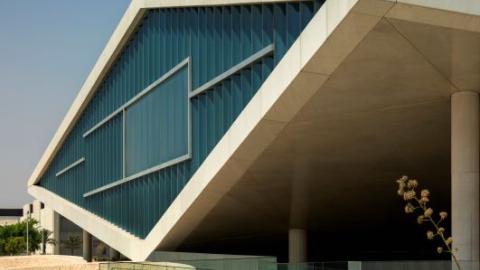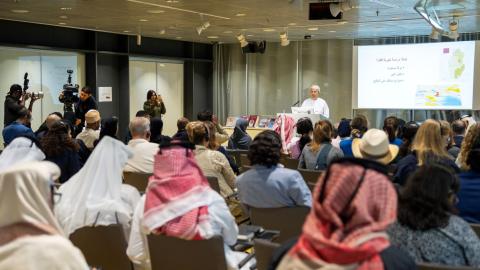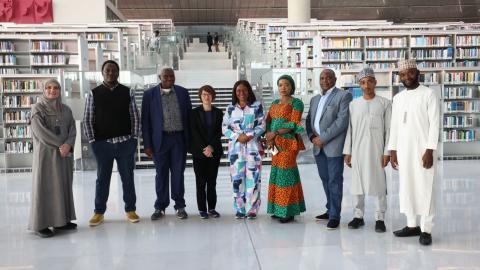
Qatar National Library, in collaboration with the Qatari Literature Initiative, hosted a lively public event today, which discussed “The Law on the Protection of the Arabic Language”.
A series of engaging presentations were delivered by Her Excellency Lolwah Rashid Al-Khater, Spokesperson for Qatar’s Ministry of Foreign Affairs, Dr. Ali Al Kubaisi, Director General of the World Organization for the Renaissance of Arabic Language, and Azudin Al Boshikhi, Head of Doha Historical Dictionary of Arabic.
“The Library is promoting Arabic language in many ways, firstly, through our extensive collection of Arabic books available to the community, which is continuously expanding. Our efforts to promote literacy among future generations are also reflected in our support to Arabic writers and publishers,” said Dr. Sohair Wastawy, Executive Director of the Library.
“Another important focus area is to increase the range of Arabic content available on the web, and we do this through a process where we digitize and use optical character recognition methods to make the Arabic text accessible and searchable online. In this way, we are using our digital resources to facilitate a wider use and understanding of the language.”
The vital task of protecting the role of the Arabic language in Qatar’s educational, cultural, economic, and media sectors began with an initiative launched by Her Highness Sheikha Moza bint Nasser, Chairperson of Qatar Foundation, in 2013, which established the World Organization for the Renaissance of Arabic Language. The law is a continuation of those efforts to raise awareness of the importance of Arabic as a national language. “The Library has a special position in the society, and it is a meeting place for Qataris and residents. It can play a very important role in teaching Arabic to the residents and generally, to people visiting Qatar, by organizing short language programs. The Library also has a number of really good books within its collection that people can borrow to learn Arabic,” said Jaber Al Jehani, a participant at the event.
Sara Mukhtar, another participant at the event, said: “I am glad the Library is collaborating with local groups to discuss the importance of Arabic language, and how it can be promoted in professional fields. Such events will surely help not only the native Arabic speakers, but also those willing to learn Arabic as a second language.”







